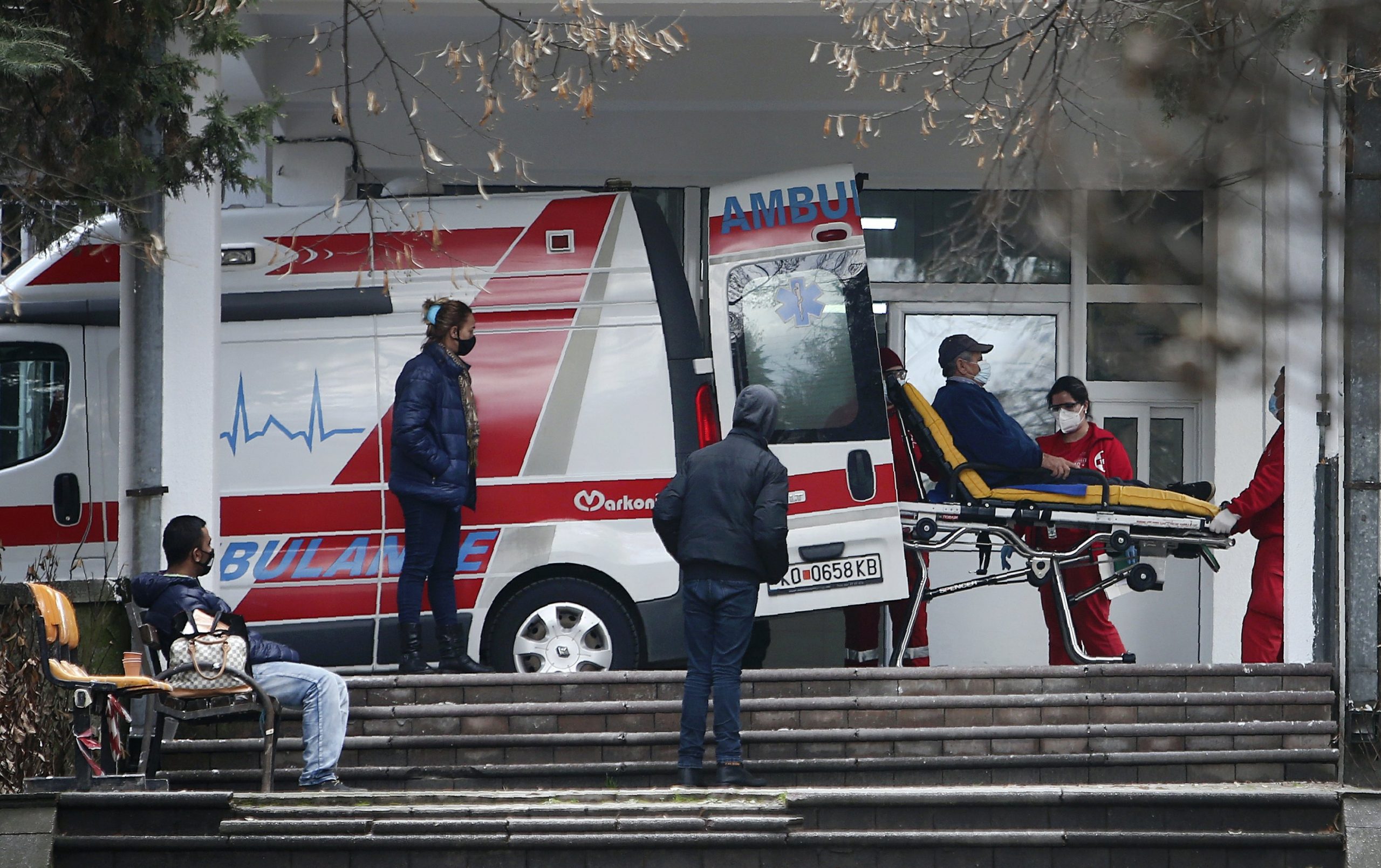
The Balkans feel deserted as vaccinations begin in Europe
Sarajevo, Bosnia and Herzegovina (AP) – When thousands of people across the European Union began rolling up their sleeves last month for a dose of the Coronavirus vaccination, one corner of the continent was left feeling isolated and abandoned: the Balkans.
The Balkan countries have struggled to gain access to COVID-19 vaccines from several companies and programs, but most countries on the southeastern fringes of Europe are still waiting for their first vaccines to arrive, with no specific timetable for the start of national vaccination campaigns.
What is already clear is that Albania, Bosnia, Kosovo, Montenegro, North Macedonia, and Serbia – home to nearly 20 million people – will lag far behind the 27 European Union countries and Britain in efforts to reach herd immunity by vaccinating a large number of Residents quickly. People.
North Macedonia epidemiologist Dragan Danilovsky compared the current vaccine situation in the Western Balkans with variations seen during the sinking of the Titanic in 1911.
“The rich have snatched all the lifeboats, leaving the less fortunate,” Danilovsky told TV 24.
These sentiments as the world faces the most serious health crisis in a century have gained momentum in the Western Balkans – a term used to identify Balkan countries that want to join but are still not part of the European Union. It is being actively fueled by pro-Russian politicians in a region sandwiched between Western and Russian spheres of influence.
“I felt as though my bottom line had fallen from my hopes of returning to a normal life,” said 50-year-old Pelma Djonko in Sarajevo, the capital of Bosnia, describing the emotional implications of hearing that thousands of doctors, nurses and nurses across the European Union received their first doses. From a vaccine developed by US pharmaceutical company Pfizer and Germany’s BioNTech while she waits for her war-torn country.
Many Balkan countries are pinning their hopes on COVAX, a global vaccine procurement agency set up by the World Health Organization and global charitable groups to address growing inequalities in vaccine distribution. COVAX has made deals for several promising COVID-19 vaccines, but for now it will only cover doses to vaccinate 20% of the country’s population.
Along with other politically unstable post-communist Balkan countries that have long announced their desire to join the European Union but have failed to meet the conditions to achieve this goal, Bosnia has kept the vaccines through COVAX and expects to start receiving their first doses in April onwards. Earliest estimate.
This looks like an eternity from now.
“In the meantime, I must continue to deny my 83-year-old father the company and the love of his grandchildren,” said Djongko, referring to the low-tech but heartbreaking technology to defend against the virus, and to keep the elderly isolated from potential sources of infection.
Serbia is the only country in the western Balkans to receive a vaccine so far, with shipments of Pfizer-BioNTech and the Russian developed Sputnik V vaccine. However, Serbia does not have sufficient doses to start mass vaccinations, with only 25,000 rounds of the Pfizer-BioNTech vaccine and 2,400 of the Russian vaccine arriving.
The vaccination program began in Serbia on December 24, three days before the European Union, when Prime Minister Anna Brnabic received a dose in an attempt to increase public confidence in the vaccine, as many Balkan governments are also struggling to counter a powerful anti-vaccination movement.
The European Commission, the executive arm of the European Union, recently approved a package of 70 million euros ($ 86 million) to help the Balkan countries get vaccines, in addition to the 500 million euros ($ 616 million) the bloc has already contributed to COVAX.
“Throughout the pandemic, the European Union has shown that we are dealing with the Western Balkans as distinct partners,” said EU Enlargement Commissioner Oliver Farhelli.
Ursula von der Leyen, Chair of the Executive Committee, says the European Union will get more vaccines than is necessary for its residents in 2021, and indicated that the bloc could share its additional supplies with the Western Balkans and countries in Africa.
However, the impression in the Balkans is that the bloc has failed again in the backward European region. In the words of Albanian political analyst Iskander Minkhozi, the European Union has reached a moment of “stand or silence”.
“You either show us that you care about us, or don’t be surprised if some of us follow the call of the Russians or the Chinese who cross the world with pockets full of vaccines,” Minkchowsi said.
The apparent lack of Western solidarity amid the pandemic is being exploited by pro-Russian domestic politicians to portray the European Union as profit-oriented. Meanwhile, Russia and China are competing for political and economic influence.
“I trust (the Russian vaccine), and I don’t trust the commercial stories coming from the West,” said Milorad Dodik, the leader of the Bosnian Serbs, before he was taken to hospital with the Coronavirus.
In the Albanian capital Tirana, Prime Minister Edi Rama demanded an apology from the Russian embassy after she posted a message on social media that Moscow was ready to immediately supply Albania with the Sputnik V vaccine, even though this shot is not approved in the European Union.
“As a person I felt indignant and as a European, I felt ashamed, while I was the Prime Minister of Albania, I feel more motivated than ever to not allow the Albanians to be excluded from the possibility of protection at the same time as other Europeans,” Rama said during his announcement. A contract to purchase 500,000 doses of the Pfizer-BioNTech vaccine.
Some believe that delaying vaccination may be a blessing in disguise in a region where years of declining confidence in government and public institutions have amplified the voices of virus deniers and vaccine skeptics.
“I cannot wait for life to return to normal, and for that to happen we need a successful vaccine,” said Belma Gazipara, an infectious disease specialist working at the COVID-19 Hospital in Sarajevo.
Gazipara says that watching the coronavirus vaccine be launched elsewhere in Europe will increase the Bosnians’ desire for vaccines as well.
She said: “As I very much hope, if approved vaccines fulfill their promises elsewhere in Europe, I would expect absorption to be much higher than it is now.”
___
Stojanovic reports from Belgrade, Serbia. Lazar Cimini contributed to Tirana, Albania, and Konstantin Testorides, in Skopje, Macedonia.

“Totale ninja voor sociale media. Introvert. Maker. Tv-fan. Bekroonde ondernemer. Webnerd. Gecertificeerde lezer.”
